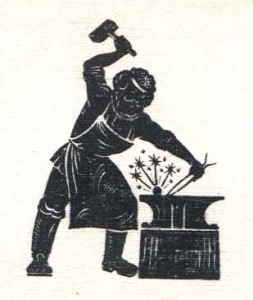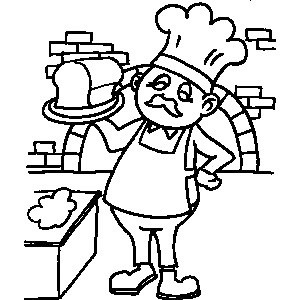MY FUTURE CAREER
- Why do people have to work?
- Do you already have an idea about your future occupation?
- How do you prepare for your professional life?
- What kinds of occupations can our society not do without and why?
I often wonder about my future as I am about to finish my secondary school. The number one question in my mind is which profession should I choose? It is very hard to make any definite choices because I know they will affect me for the rest of my life. I want a profession that will satisfy me, challenge me, and bring me joy. I believe that a job should be like a hobby.
When I was a child, I had never thought about my future career. I was influenced by stories and fairy tales and I wanted to have various advantures. Hardly any of those came true because children´s views of the world are too romantic. Then I started to attend Elementary school and all my dreams changed. I was interested in many things – in nature, music (I played the piano and listened to music a lot), in sports (swimming, skating, judo), in culture (going to the cinema, to the theatre and exhibitions), in reading. I was quite good at school, I like all my subjects. My plans for my future career changed from day to day. I wanted to be an architect, an actor, a cook, a vet or a lab assistant, a scientist, a chemist, a postman, a teacher, a journalist, a judge, an artist, a forester...
During my studies at the Secondary school I began to think about my future more seriously and so did my parents. It was not easy. I wanted to work with people. I wanted to do something useful for them. Since the first form I have been attending the films and lectures given by the Film Club in our town. I started to like film production. Now I am keen on film history, theory, I study film magazines, books, I keep special files in my computer about films I have seen. I would like to be a film director or work in the film industry. I am really crazy about it these days. My parents, however, don´t share my opinion. They are right in their way, they want only the best for me, but I think that if we want something very badly and if we do everything possible for it, we must manage. If I want to do my job well, I must have profound knowledge of the subject. Nowadays I am studying very hard, especially humanities such as History, Literature, Languages, Psychology and Philosophy.
I know that it is a very attractive job and it will be very difficult to get to the Film Faculty. I am ready for anything. I will have to devote a great deal of my timeto work. Maybe I will become only a film amateur rather than a good professional. That´s why I have also applied to the Biology Faculty. If my parents find out that I am serious, they will certainly start to help me. I don´t want to disappoin them or myself.
It is often hard for young people who just finish their studies to find a job. Many people who are unemployed try to improve their chances of entering the job market by attending various vocational training courses. The rate of unemployment is steadily increasing, especially in our region.
How to find a job?
Finding a job can be one of the most interesting, exciting or stressful times of your life. It all depends on how prepared you are. You can go to the Work office or to an employment agency, look for jobs in newspapers, search the internet, ask family and friends if they know anything, e-mail or telephone companies directly, or all of these, to find out who has a job opening (a vacancy). You need to prepare some basic documentation. These documents include a copy of your secondary school diploma, your c.v., the abbreviation for the Latin words curriculum vitae, and a cover letter ( a brief letter that goes with your c.v.).
No matter how you find a job, the most important thing to remember is to make a good impression. This is essential at the job interview, and why you are actually working, too. What makes a good impression: a clean, neat appearance, being on time and not leaving early, showing that you are open-minded and want to learn all you can, being willing to help in whatever is needed. A smile and a generally cheerful attitude does not hurt, either.
Here is a list of traditional professions:
a baker, a cook, a shoemaker, a miller, a butcher, a blacksmith, a bricklayer, a weaver, a tailor, a winemaker, a doctor, a nurse, a waiter, a salesperson, a teacher, a painter, etc.
With the development of industry and technology many new professions have appeared, such as: a driver, an electrician, a plumber, an engineer, a locksmith, a photographer, a programmer, etc.
Some of the more popular careers are an economist, a lawyer, a manager, an airhostess, a singer, an actor, a customs officer, a financial consultant, a detective, a private businessman, a journalist, etc.

